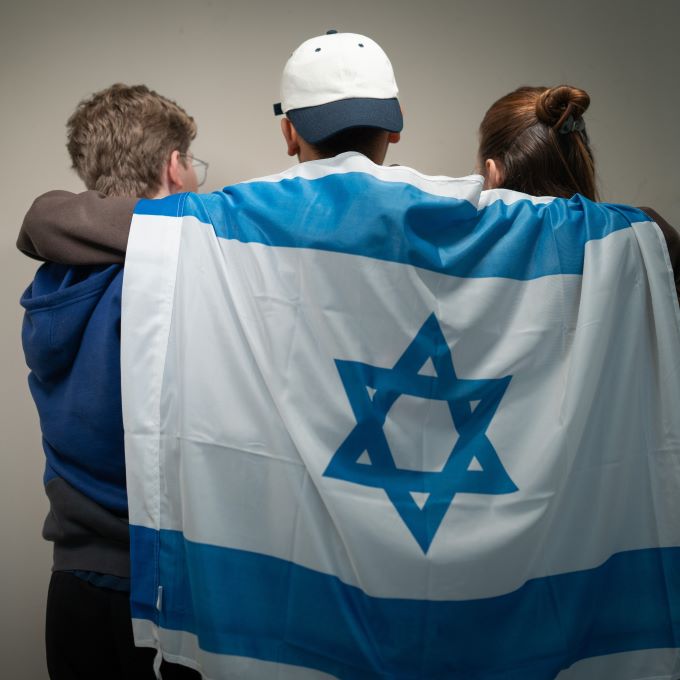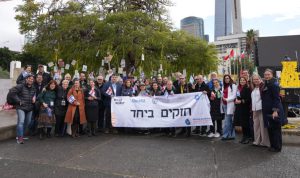

Earlier this year Daniel Tysman, Head of World ORT’s Education Department, took part in a very significant mission to Israel, alongside 30 leading educators from around the world.
The group considered the key issues facing Jewish education globally post-October 7.
Participants explored the educational opportunities presented by the tragedy and considered the resources needed to transform a Jewish crisis into an opportunity for fostering greater Jewish belonging, confidence, and resilience.
In this piece, written as part of a compilation of essays for the UnitEd organization which provides a network for developing and empowering Jewish educators worldwide, Daniel explores some of the lasting impressions he took from the trip:
The mission provided an extraordinarily close-up view of how Israelis are living through and responding to their ongoing trauma.
We were persistently challenged to reflect, respond, and share our thoughts, making it feel like an event of historic significance for the entire Jewish people.
The main impression made on me was that we all have a huge and pressing obligation to respond. Examples of unity, kindness and heroism that we witnessed gave me optimism that educators responsible for Jewish identity can use this momentous time to rethink and rebuild.
Spontaneous expressions of unity in response to shared grief can be a foundation for systematically building a new, deeper, more intentional version of Jewish peoplehood.
The kindness shown to displaced families, and the outpouring of support for the loved ones of the victims and hostages showed us a different and better way to respond to cruelty.
Visiting the sites of tragedy and meeting people whose lives have been torn apart also exposed stories of individual heroism.
Elie Wiesel wrote that whoever listens to a witness becomes a witness. The narrative and language that we use as educators to retell the story of this tragedy has the potential to reinvigorate Jewish pride.
The ORT network reaches a hugely diverse student population across more than 30 countries. One unifying feature is that our schools share a sense of belonging to a global Jewish family and their educational programs put emphasis on our collective history.
In the wake of the events of 7/10 our connection to this supportive network helped us to navigate the dark months that followed. The heartache of colleagues, relatives and friends has left us emotionally drained. The representation of the war across all forms of media and new expressions of antisemitism have contributed to a sense of insecurity and uncertainty that has tested our resilience.
For all of us responsible for building confident Jewish identities and positive connections to Israel, the Jewish educators’ mission came at a critical time.
We had been asking ourselves how to reassure young people whose media feeds portray Zionists as the perpetrators of evil. What level responsibility should they assume to promote a narrative that counters hate? How do we prepare them for the transition to university campuses where they are likely to encounter hostility towards Israel?
In the short term we need measures to address the specific challenges, to find some order in the chaos, to look out for each other’s wellbeing and to provide a level of security that makes us all feel safe.
Over the coming months we are going to be conducting a strategic review of Israel education across the international ORT network, leading our school leaders and educators to transform our approach to building Jewish identity in terms of peoplehood and forming relationships with Israel.
The social entrepreneurs we met during the mission taught us that above all, it’s important to respond to a need with action, and that having a clarity of mission can overcome obstacles and lead to impactful change.

Daniel (holding the left corner of the banner) with fellow educators in Israel. The trip was organized and sponsored by the Israeli Ministry of Diaspora Affairs, the Pincus Fund for Jewish Education, the World Zionist Organization and The Koret Center for Jewish Civilization – a partnership between ANU – Museum of the Jewish People and Tel Aviv University.